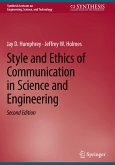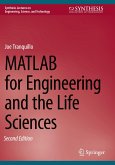This book serves as a valuable aid for scientists and engineers who seek to discover and disseminate knowledge so that it can be used to improve the human condition. This book can be used as a textbook for undergraduate or graduate courses on technical communication and ethics, a reference book for senior design courses, or a handbook for young investigators and beginning faculty members.
In addition to presenting methods for writing clearly and concisely and improving oral or poster presentations, this compact book provides practical guidelines for preparing theses, dissertations, journal papers for publication, and proposals for research funding. Issues of authorship, peer review, plagiarism, recordkeeping, transparency, and copyright are addressed in detail, and case studies of research misconduct highlight the need for proactive attention to scientific integrity. Ample exercises cause the reader to stop and think. The authors motivate the reader to develop an effective, individual style of communication and a personal commitment to integrity, each of which are essential to success in the workplace.
In addition to presenting methods for writing clearly and concisely and improving oral or poster presentations, this compact book provides practical guidelines for preparing theses, dissertations, journal papers for publication, and proposals for research funding. Issues of authorship, peer review, plagiarism, recordkeeping, transparency, and copyright are addressed in detail, and case studies of research misconduct highlight the need for proactive attention to scientific integrity. Ample exercises cause the reader to stop and think. The authors motivate the reader to develop an effective, individual style of communication and a personal commitment to integrity, each of which are essential to success in the workplace.








